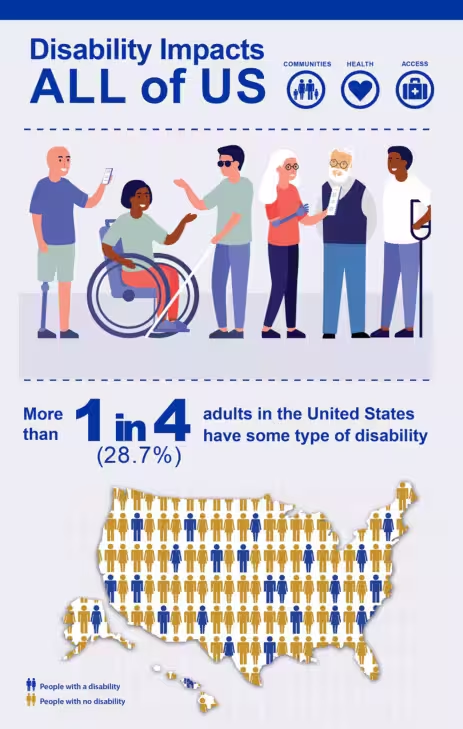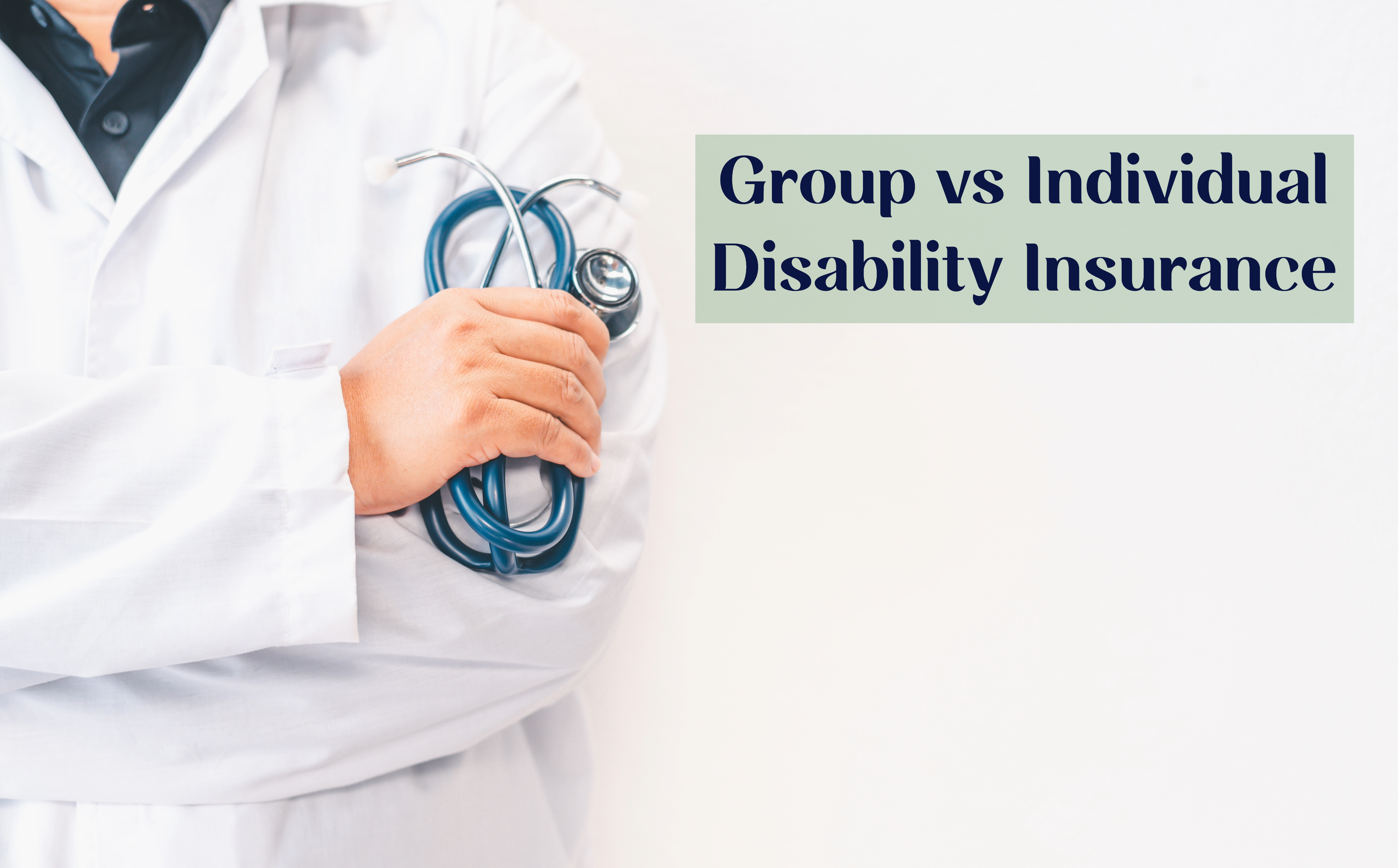The Risks of Disability

Your Income: The Cornerstone of Your Life
Your income is the cornerstone of the life you’ve built. You take care to insure your home and its contents against theft, fire, and floods. You insure your life for your family to continue living the lifestyle you've left behind. Perhaps you’ve even insured other valuables, like jewelry, antiques, or collectibles. But what about the most important asset of all—the one that makes all of these things possible?
Your income is the foundation of your lifestyle and the key to achieving your goals. But what happens if you’re too sick or injured to work and earn a living? Unfortunately, disabilities are far more common than most people realize.
Understanding the Reality of Disability
Many believe that disabilities primarily affect older individuals or result from work-related accidents, but the facts paint a different picture:
- More than 1 in 4 of today’s 20-year-olds will experience a disability before retirement.
- Illnesses, not accidents, account for 90% of all disabilities.
- Nearly 95% of disabling conditions are unrelated to the workplace.
The Ripple Effects of a Disability
According to the CDC’s Disability and Health Promotion data, more than 1 in 4 adults in the United States lives with some form of disability. While disabilities affect everyone differently, their financial and personal impacts can be profound - especially for those in the medical and dental fields.
As a doctor, dentist, or other medical professional, you’ve invested years in education and training:
- Four years earning your medical degree.
- Another three to seven years completing residency.
- Possibly an additional one to three years in a fellowship.
Your financial goals may include becoming financially independent by 65 or retiring early. For physicians, the impact of a disability can be particularly severe due to the significant opportunity costs and time invested in becoming an attending.
Income Protection Options to Protect Your Prosperity
Group Long-Term Disability Insurance
While Group, employer-sponsored, LTD can be a helpful foundation, it has limitations:
- Not True Own Occupation | the most important definition of disability.
- Benefits will be reduced if you are disabled but receiving any other income or benefits.
- Benefits can be taxed while you're disabled.
- Not portable | you lose coverage if you change jobs.
- Cap in your benefits limit claims to a listed maximum monthly benefit.
- May not cover bonus income, productivity or RVU compensation.
- Not customizable.
Individual Disability Insurance
Individual policies offer stronger, customizable protection:
- True Own Occupation definitions of disability | covering your ability to work in your specialty even if you decide to work in another occupation while disabled.
- Benefits will not be reduced against other income or benefits you receive while disabled.
- Benefits are not taxable.
- Portable | coverage stays with you, regardless of job changes.
- Noncancelable and Guaranteed Renewable | fixed premiums and policy will continue unless you decide to cancel or stop paying for the policy yourself.
- Carriers can consider coverage for your bonus income and any productivity, RVU pay.
- Riders can be purchased such as cost of living adjustment and future benefit increases.
- Purchasing a set benefit amount means that is the claim amount you'll receive when disabled; you do not have to document income at the time you became disabled.
- There may be exclusions on your individual disability insurance policy, but they will only relate to any pre-existing conditions you had at the time of applying.
- Depending on your career stage, lab testing could be waived when applying.
- 10% - 40% discounting is available depending on the company, specialty, employer, or if you're a resident or fellow.
Questions to Ask When Choosing a Policy
- What is considered “total disability”?
Understand the definition of total disability in your policy. Some cover your inability to perform your own specialty, even if you work in another field. - How much coverage can I get?
Policies typically cover up to 60% of your income. - When do benefits start?
Policies have an elimination period, often 90 days, before benefits begin. - How long do benefits last?
Choose a benefit period that aligns with your financial goals—commonly up to age 65 or 67. - Can my policy be canceled or premiums increased?
Look for non-cancellable policies with fixed premiums. - What happens if I change jobs?
Individual policies are portable, ensuring continuous coverage. - Does the policy include partial disability benefits?
A good policy pays benefits even if you're only partially disabled, ensuring income support during recovery. - Is there protection for my business?
Business owners may consider:- Overhead Expense Insurance: Covers ongoing business expenses during a disability.
- Disability Buy-Out Insurance: Provides funds for partners to buy out your share if you’re unable to return.
- Business Reducing Term Insurance: Protects against loan obligations tied to your business.
Get Started Now
Disability insurance is an essential safeguard for maintaining your lifestyle and achieving your goals, especially for medical and dental professionals. At Protuity, we specialize in tailoring coverage to your unique needs. Protect your path to prosperity today—contact us for a personalized consultation.
